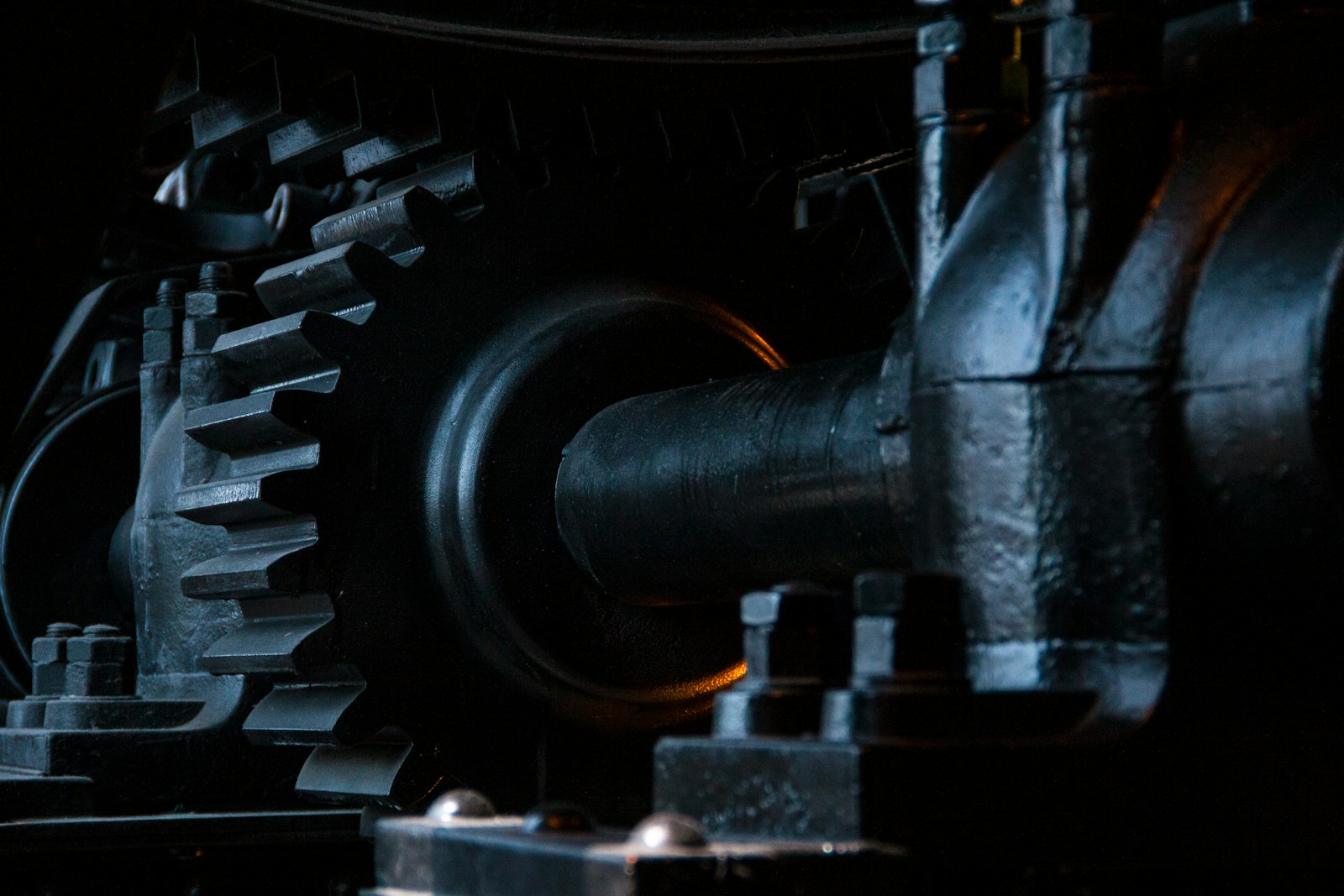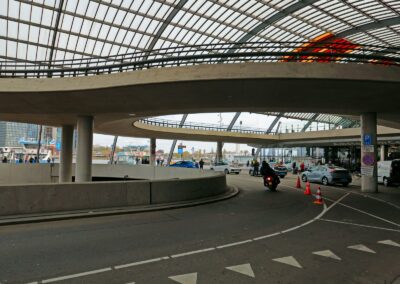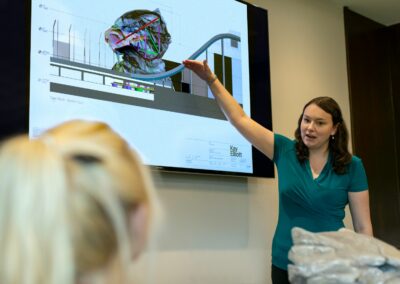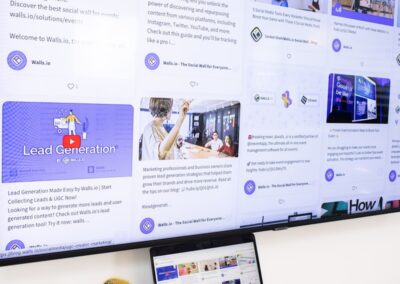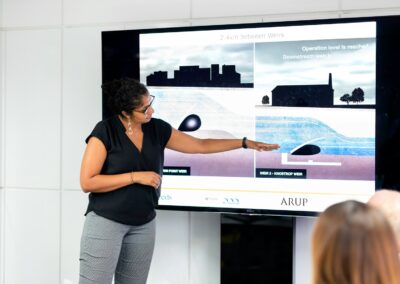Transforming Legacy Infrastructure with IoT Technology
In the dynamic landscape of modern technology, the deployment of IoT technology for adaptive and resilient systems is revolutionizing how businesses and cities manage their operations. Legacy infrastructure, often characterized by outdated and rigid systems, struggles to meet the demands of today’s fast-paced and unpredictable environment. IoT technology, with its ability to collect, analyze, and act on real-time data, provides a more flexible and robust solution. This shift is particularly evident in the UAE and Saudi Arabia, where the adoption of IoT is driving significant improvements in operational efficiency and infrastructure resilience.
Enhanced Adaptability through Real-Time Data
One of the primary advantages of IoT technology is its capacity to enhance adaptability through the continuous collection and analysis of real-time data. Legacy systems typically operate on fixed schedules and predefined parameters, making it difficult to respond to sudden changes or unexpected events. IoT devices, however, can monitor conditions in real-time and adjust operations accordingly. For instance, in smart cities like Dubai and Riyadh, IoT-enabled traffic management systems can adapt to changing traffic patterns, reducing congestion and improving flow. This real-time responsiveness is crucial for maintaining efficient operations and enhancing the quality of life for residents.
In the industrial sector, IoT technology enables machinery and equipment to adapt to varying conditions, optimizing performance and preventing breakdowns. By continuously monitoring parameters such as temperature, vibration, and pressure, IoT sensors can detect anomalies and trigger preventive maintenance actions before issues escalate. This proactive approach minimizes downtime and extends the lifespan of critical assets, providing a stark contrast to the reactive maintenance strategies often associated with legacy systems. In Saudi Arabia’s manufacturing industry, this adaptability is enhancing productivity and operational efficiency, giving businesses a competitive edge.
Building Resilience through Predictive Analytics
Resilience is another critical benefit of deploying IoT technology in place of legacy infrastructure. Traditional systems often lack the ability to foresee and mitigate potential disruptions, leading to vulnerabilities in operations. IoT technology, on the other hand, leverages predictive analytics to identify patterns and predict future events. By analyzing historical and real-time data, IoT systems can forecast equipment failures, supply chain disruptions, and other operational risks. This foresight allows businesses and cities to implement contingency plans and reduce the impact of unforeseen events.
In Dubai, smart water management systems use IoT sensors to monitor water quality and distribution networks. Predictive analytics helps identify potential leaks or contamination issues before they become critical, ensuring a reliable and safe water supply for residents. Similarly, in Saudi Arabia, IoT-enabled energy grids can predict and manage power demand fluctuations, preventing outages and ensuring a stable energy supply. This predictive capability not only enhances operational resilience but also supports sustainable resource management.
Seamless Integration and Scalability
The integration and scalability of IoT technology further distinguish it from legacy systems. Traditional infrastructure often involves siloed operations with limited interconnectivity, making it challenging to scale and integrate new technologies. IoT solutions, however, are designed to work seamlessly with existing systems and scale as needed. This flexibility is essential for businesses and cities looking to expand their operations and incorporate new innovations.
For example, in Riyadh, smart building solutions are integrating IoT devices to manage lighting, HVAC systems, and security. These systems can easily scale to accommodate additional devices and functionalities, ensuring that the infrastructure remains adaptive and responsive to changing needs. This level of integration and scalability is difficult to achieve with legacy systems, which are often rigid and require significant modifications to support new technologies.
Strategic Implementation of IoT for Enhanced Adaptability and Resilience
Developing a Robust IoT Strategy
To fully leverage the benefits of IoT technology for adaptive and resilient systems, businesses and cities must develop a robust IoT strategy. This involves identifying the specific needs and challenges of their operations and selecting appropriate IoT solutions to address these issues. In Saudi Arabia, executive coaching services can provide valuable guidance in formulating and executing an effective IoT strategy. By aligning IoT initiatives with organizational goals, companies can ensure that their investments deliver maximum value and drive significant improvements in operational performance.
Furthermore, businesses should invest in training and support to maximize the effectiveness of their IoT deployments. This includes equipping employees with the necessary skills to manage and optimize IoT systems and providing ongoing support to address any issues that arise. In the UAE, companies that prioritize training and support can enhance user adoption and utilization of IoT technology, leading to greater operational efficiency and resilience.
Ensuring Security and Privacy
As with any technology deployment, ensuring security and privacy is crucial when implementing IoT solutions. IoT systems often involve the collection and transmission of sensitive data, making them potential targets for cyberattacks. Businesses must implement robust security measures, such as encryption, secure authentication, and continuous monitoring, to protect their IoT networks. In Dubai, the emphasis on cybersecurity for IoT solutions ensures that data transmitted through these systems is safeguarded against unauthorized access and tampering.
Effective data privacy practices are also essential for maintaining user trust and compliance with regulations. Businesses should establish clear policies for data collection, storage, and usage to ensure that user information is handled responsibly. In Saudi Arabia, companies that prioritize data privacy can build trust with their customers and stakeholders, reinforcing their commitment to protecting valuable information. By maintaining high standards of security and privacy, businesses can ensure the long-term success and reliability of their IoT solutions.
Fostering Innovation and Continuous Improvement
The field of IoT technology is continuously evolving, and businesses must foster a culture of innovation and continuous improvement to stay ahead. This involves staying updated on the latest developments and trends in IoT technology and exploring new applications and use cases. In Saudi Arabia and the UAE, executive coaching services can provide valuable support in fostering innovation within organizations. By encouraging leaders to embrace new technologies and methodologies, coaching can help businesses drive continuous improvement and maintain a competitive edge.
Moreover, businesses should collaborate with technology partners and industry experts to accelerate the development and adoption of new IoT solutions. By participating in industry forums, conferences, and research initiatives, companies can gain insights into best practices and emerging trends. In Dubai, such collaborative efforts can lead to the development of new standards and protocols that enhance the effectiveness and reliability of IoT systems. By investing in innovation and collaboration, businesses can ensure that they remain at the forefront of technological advancements and drive sustainable growth.
In conclusion, IoT technology for adaptive and resilient systems offers significant benefits for businesses and cities looking to enhance their operations and infrastructure. By leveraging real-time data, predictive analytics, and scalable solutions, organizations can transform their legacy systems into flexible and robust IoT networks. As the adoption of IoT technology continues to grow in Saudi Arabia, the UAE, Riyadh, and Dubai, businesses and cities will unlock new opportunities for efficiency, sustainability, and long-term success.
#IoTTechnology #AdaptiveSystems #ResilientInfrastructure #SmartCities #DigitalTransformation #BusinessSuccess #UAEInnovation #SaudiArabiaTech #DubaiSmartCity #RiyadhTechnology






